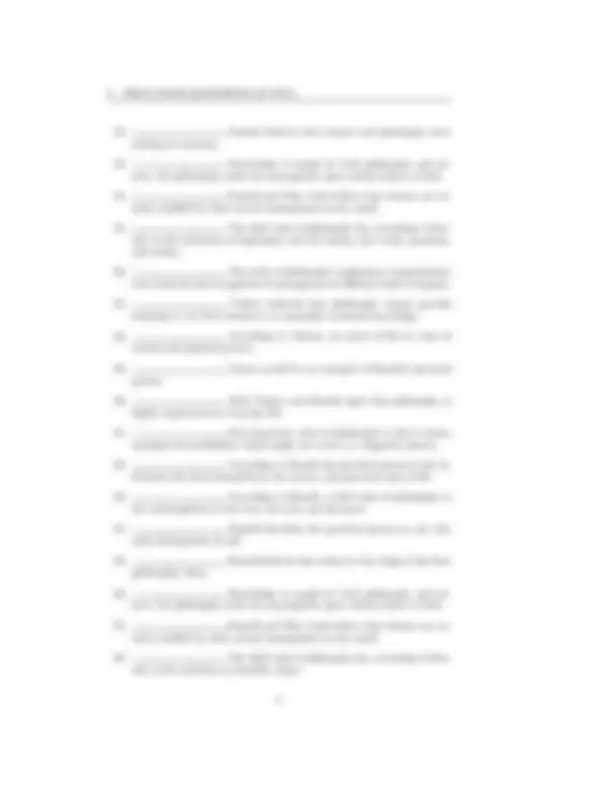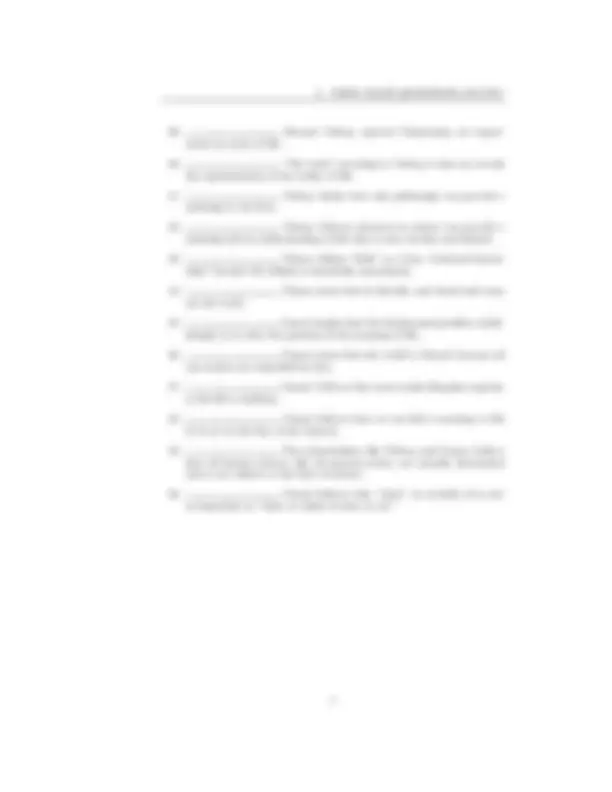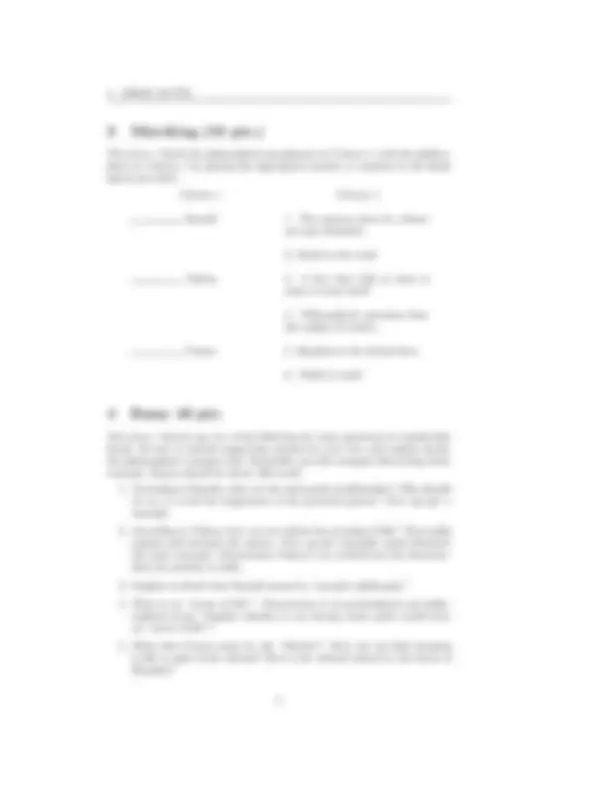





Study with the several resources on Docsity

Earn points by helping other students or get them with a premium plan


Prepare for your exams
Study with the several resources on Docsity

Earn points to download
Earn points by helping other students or get them with a premium plan
Community
Ask the community for help and clear up your study doubts
Discover the best universities in your country according to Docsity users
Free resources
Download our free guides on studying techniques, anxiety management strategies, and thesis advice from Docsity tutors
Material Type: Exam; Professor: Moore; Class: Intro to Philosophical Inquiry; Subject: Philosophy; University: Lander University; Term: Spring 2009;
Typology: Exams
1 / 5

This page cannot be seen from the preview
Don't miss anything!




Do not recopy the questions when you submit the answers to this test. Simply number the questions in accordance with the test sheet.
Caution: All work on this test must be your own work. Do not discuss true/false questions with other members of the class. Be sure to review policy requirements for tests in the syllabus under the sections entitled, “Evaluation,” “Tests,” and “ How to Save with a .doc Extension.” Important: Statistical checks of academic honesty are made on all tests submitted for both true/false and essay questions.
Directions: Write in the blanks below the word “true” or the word “false” in accordance with the truth or falsity of the statement.
Directions: Match the philosophical paraphrases in Column 2 with the philoso- phers in Column 1 by placing the appropriate number or numbers in the blank spaces provided.
Column 1 Column 2
Russell 1. The answers given by science are only identities.
Tolstoy 3. A face that toils so close to stone is stone itself.
Camus 5. Sisyphus is the absurd hero.
Directions: Answer any two of the following five essay questions in considerable detail. Be sure to include supporting reasons for your view and explain clearly the philosophical concepts used. If possible, provide examples illustrating those concepts. Essays should be about 400 words.